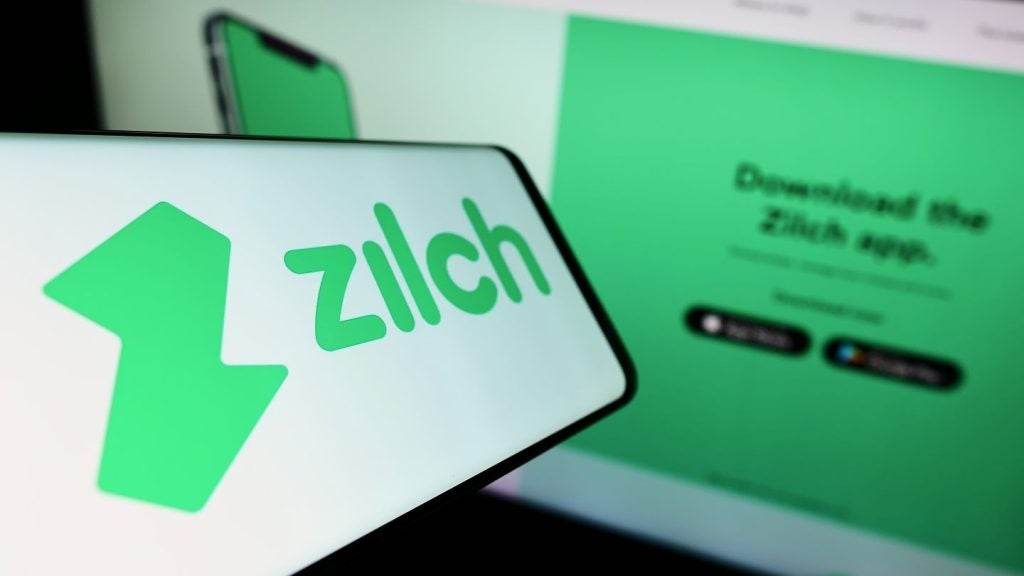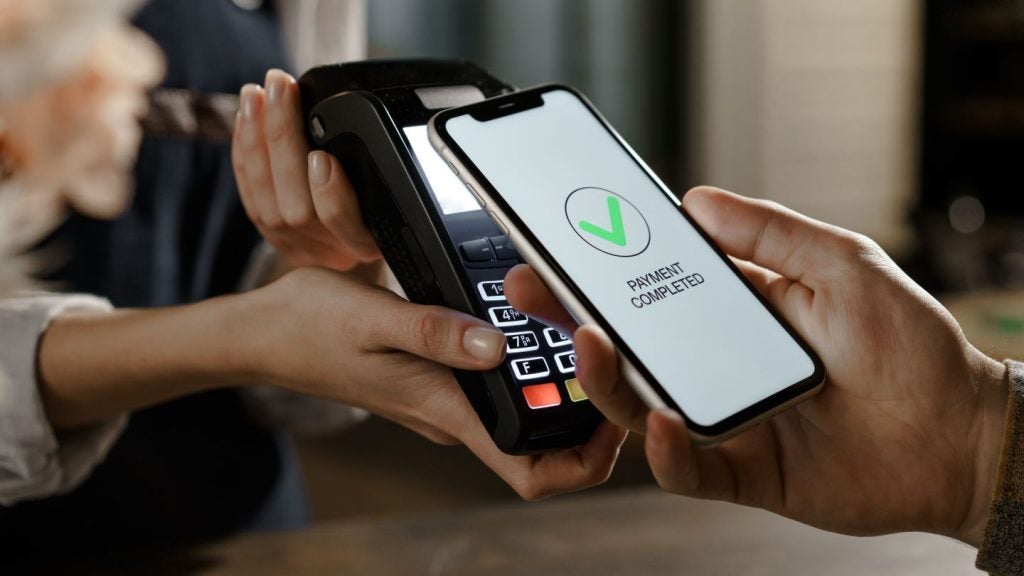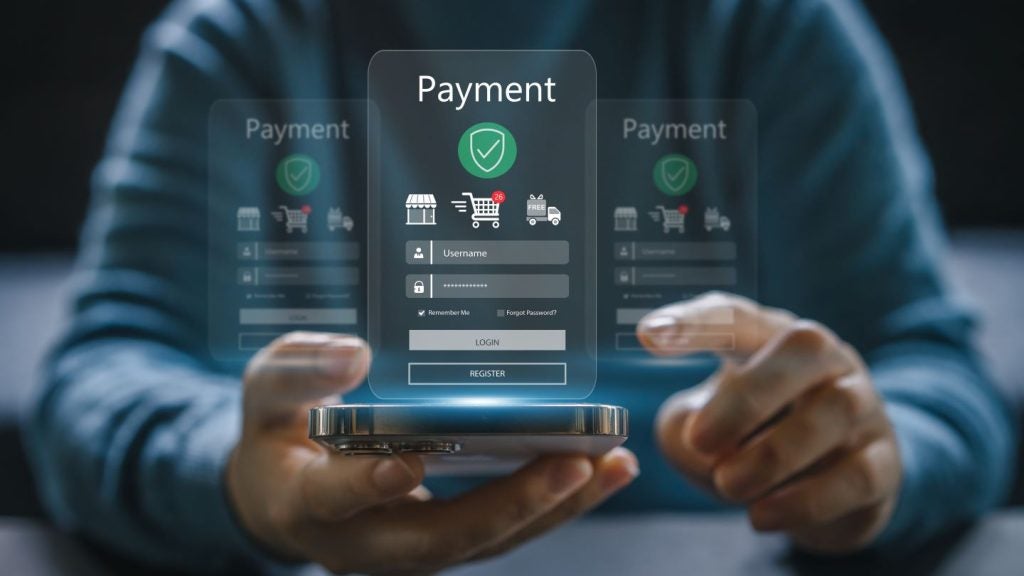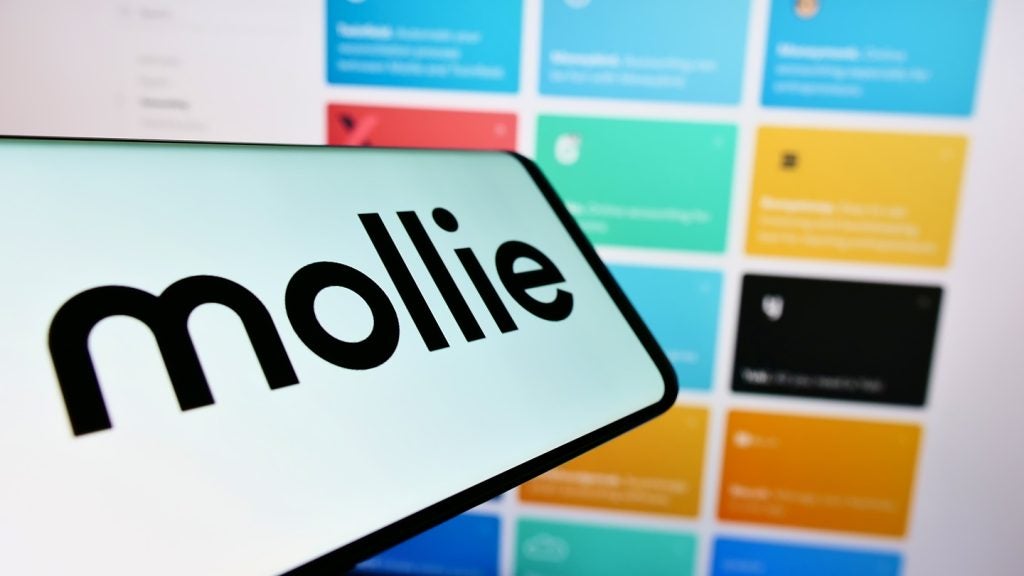Mobile Payments Revolutionizing Haiti
The
earthquake-stricken Caribbean island of Haiti is the location for
an innovative mobile money service which is bringing financial
inclusion to the unbanked. Robin Arnfield reports
In November 2010, Canada’s Scotiabank,
Caribbean telco Digicel and Latin American mobile banking and
payments software firm YellowPepper launched the TchoTcho Mobile
service in Haiti.

Access deeper industry intelligence
Experience unmatched clarity with a single platform that combines unique data, AI, and human expertise.
The mobile wallet service, which as of March
2012 is run by a network of 960 agents, enables Haitians to carry
out cash withdrawals, deposits and person-to-person transfers via
their mobile phones, without needing traditional bank accounts.
YellowPepper supplies and manages the agent
network, the IT infrastructure and payments software for TchoTcho
Mobile. Scotiabank, which only has four branches and four ATMs in Haiti, is responsible for registering agents
and for ensuring compliance with Haitian financial regulations.
Prior to the launch, Scotiabank, YellowPepper
and Digicel ran a pilot with World Vision, involving 160 of the
charity’s employees using TchoTcho Mobile for cash-for-work
payments. Cash-for-work involves NGOs (non-governmental
organisations) hiring labourers on an occasional basis.
According to USAID (U.S. Agency for
International Development), only 10 percent of Haitians had bank
accounts in 2011, although 80 percent of households have access to
a cellphone. After the January 2010 earthquake, a third of Haiti’s
bank branches were destroyed, which further weakened financial
inclusion.

US Tariffs are shifting - will you react or anticipate?
Don’t let policy changes catch you off guard. Stay proactive with real-time data and expert analysis.
By GlobalData
Goal
“We currently have 500,000 users of TchoTcho
Mobile,” says David Sharpe, Digicel Haiti’s head of products and
pricing. “Since Digicel has 4 million cellphone subscribers in
Haiti, this means that one in eight of our customers is a TchoTcho
Mobile user.”
“TchoTcho Mobile processed 6 million
transactions in 2011,” says Kareem Aziz, an investment officer in
the Telecoms, Media and Technology Unit of the International
Finance Corporation’s (IFC) Global Infrastructure Department. The
World Bank subsidiary made an equity investment in YellowPepper in
2010, and has provided funding for Digicel’s mobile infrastructure
in Haiti and other countries where Digicel operates.
“We have seen up to 300,000 transfers per
month via TchoTcho Mobile,” a Scotiabank spokesperson says.
“The growth in subscribers and transactions is
very impressive, given that full rollout of TchoTcho Mobile only
took place in April 2011,” says Aziz. “TchoTcho Mobile has more
agents than the formal Haitian banking system has bank branches.
There are an estimated 200 bank branches and 200 Western Union
offices in Haiti. What TchoTcho Mobile offers in Haiti is
cutting-edge technology in a very poor environment. Mobile banking
isn’t a necessity in a country such as the US, but it is a
necessity in Haiti, due to the lack of other alternatives. For
example, it’s very important for people working in Port au Prince
to be able to send money electronically to their families elsewhere
in the island.”
Digicel has around 70 percent of the Haitian
mobile phone market. “Digicel’s goal is for one in two of its
Haitian GSM subscribers – i.e. 2 million Digicel subscribers – to
sign up for TchoTcho Mobile,” Sharpe says.
Digicel, which operates mobile phone networks
in 31 countries in the Caribbean, Central and South America, and
the South Pacific, provides mobile money services in four other
countries apart from Haiti, says Sharpe.
Two types of account
“TchoTcho Mobile offers two types of account,
both of which function as mobile prepaid debit cards,” says Sharpe.
There is no cost to open either account or for depositing cash, and
transaction fees for cash-out, transfers and point-of-sale payments
are very low.
“The basic account has a maximum account
balance of HTG 4,000 (US$100),” Sharpe says. “To open a basic
account, you enter *202# on your handset and select a PIN, and
there is no requirement for identity documents when you deposit
your funds at an agent location.”
The other type of account has a maximum
account balance of HTG 10,000 ($250), and requires users to provide
a national identity document such as an ID card, passport or
driver’s licence when they open the account.
Users are required to provide ID when taking
more than HTG 4,000 ($100) out of their basic or full accounts. The
maximum daily transaction total for the basic account is HTG 4,000,
while for the full account the total daily limit is HTG 20,000
($500) and the total monthly amount is HTG 60,000 ($1,500). The
maximum value per transaction on the full account is HTG
10,000.
These maximum amounts are in compliance with
the transaction limits stipulated in the mobile money framework
established in September 2010 by La Banque de la République d’Haïti
(the Central Bank). Another requirement of the framework is that
participating banks must take full fiduciary responsibility for
mobile money services, including the approval of agents, says
‘Haiti Mobile Money,’ a case study by US-based consultancy Dalberg
Global Development Advisors.
Agents
There are two categories of TchoTcho Mobile
agent, super-agents and standard agents. Sharpe says that 15
percent of TchoTcho Mobile’s agents are super-agents.
“Super-agents provide e-money to agents, have
a relatively large start-up capital, are usually established
enterprises and must keep enough cash on hand to execute
transactions for agents and TchoTcho Mobile clients,” a Digicel
presentation about TchoTcho Mobile says. “Their daily transaction
limit is HTG 1 million ($25,000). Standard agents register and
‘train’ new TchoTcho Mobile clients, and perform cash-in and
cash-out transactions. Their daily transaction limit is HTG 200,000
($5,000).”
Currently, a large number of TchoTcho Mobile
users are concentrated in Port au Prince. “The challenge is to get
more transactions from users across Haiti, so that our agents are
incentivised to hold more liquidity,” says Serge Elkiner,
YellowPepper’s CEO and co-founder. “The more people use TchoTcho
Mobile for cash-in and cash-out, the greater the incentive for our
agents to be liquid. They will hold cash in their stores if they
know TchoTcho Mobile users have a demand for it.”
Services
TchoTcho Mobile offers payroll and
cash-for-work payment services to NGOs, private businesses and the
Haitian government, enabling them to pay workers direct via the
mobile money service. In addition, TchoTcho Mobile offers domestic
P2P transfers, bill payments to registered billers, and airtime
top-up for Digicel accounts at a discount.
Instead of using SMS text messaging, TchoTcho
Mobile uses Unstructured Supplementary Service Data (USSD), a
protocol which enables GSM-based cellphones to communicate in
real-time with a service provider’s computers.
“We currently have four billers signed up for
our bill payment service, including a catalogue company that
customers can pay via TchoTcho Mobile for their catalogue
purchases,” says Sharpe. “We have more billers waiting to
join.”
“More than 1,000 people per month are
receiving their pay through Tcho Tcho Mobile,” the Scotiabank
spokesperson says. “There are around 3,000 retail locations in
Haiti where you can buy goods and services using Tcho Tcho Mobile
payments.”
A market that Digicel intends to tap for
TchoTcho Mobile is conditional cash transfer payments, where NGOs
or the Haitian government disburse cash to social welfare
recipients, provided they meet certain criteria. “Conditional cash
transfer is still embryonic in Haiti, and is in the process of
being rolled out by NGOs,” says Sharpe. “But we think that
conditional cash transfers will be a very big part of TchoTcho
Mobile’s business model in the next few years, and could
potentially be our number two revenue-generator. We have had a lot
of interest from NGOs and government programs in Haiti about using
TchoTcho Mobile to make conditional cash transfer payments to
recipients’ cellphones.”
Multi-bank model
Sharpe says that, having originally launched
TchoTcho Mobile with Scotiabank, Digicel intends to widen the
number of banks that it works with. “Our goal is to have a
multi-bank model,” he says. “We are planning to sign up five other
banks, all of which are local Haitian banks.”
“We have a switch in our platform in Haiti
which enables the banks taking part in TchoTcho Mobile to be
inter-operable,” says Serge Elkiner, YellowPepper’s CEO and
co-founder. “But this switch only works inside TchoTcho
Mobile.”
Currently, there is no interoperability
between Haiti’s banks, although the country’s Central Bank is in
the process of implementing a national payments switch, according
to Dalberg.
The Central Bank’s regulatory framework for
mobile money services includes a requirement that rival m-wallet
services should be interoperable. Dalberg says that a truly
interoperable mobile payments architecture will take time to
develop in Haiti, because of the need for rival schemes to achieve
technical alignment between their platforms. “As a result,
requirements for interoperability currently are not being enforced
in Haiti,” the consultancy says.
Remittances
“In April 2012, Digicel and one of our new
local Haitian partner banks will trial a service enabling TchoTcho
Mobile users to receive international remittances,” says Sharpe.
“This bank owns an international remittance business. The plan is
to launch an international in-bound remittance business for
TchoTcho Mobile in summer 2012.”
Several of the other Haitian banks that
Digicel intends to partner with, have international money transfer
licences, as well as current arrangements with international
remittance companies. Sharpe says that Digicel wants to offer
international mobile money transfer services with these banks, but
that it will need to set up separate integrations with the banks
and their international remittance partners.
“Digicel’s five new bank partners are looking
to offer loan accounts and savings accounts on TchoTcho Mobile,”
Sharpe says. Another advantage of working with these banks will be
that they are keen to increase the number of registered TchoTcho
Mobile agents in Haiti, and are flexible about the registration
process.
“As we get into the payroll and cash-for-work
markets, then we need to have a wider cross-Haiti agent network,”
says Sharpe. “To become a TchoTcho Mobile agent or a merchant or
biller who accepts TchoTcho Mobile payments, you need a bank
account with a TchoTcho Mobile partner bank.”
“In summer 2012, TchoTcho Mobile will offer
microinsurance, loans, savings accounts and conditional cash
transfer programs,” says Sharpe. “We will also be focusing on B2B
market, for example food distributors and soda bottle refilling
companies that send out drivers to bars to collect empty bottles
and restock with filled bottles. We will offer TchoTcho Mobile
payments to these firms, which means that their delivery drivers
won’t be accepting cash payments and run the risk of being robbed.
Another benefit of using TchoTcho Mobile for the food and beverage
companies is that they will get an electronic timeline of when
their drivers delivered their goods to merchants.”
“YellowPepper’s plan is to offer mobile
banking services in Haiti in partnership with TchoTcho Mobile to
consumers who have bank accounts,” says Elkiner. “They would not
sign up for a TchoTcho Mobile wallet, but would use YellowPepper’s
mobile banking platform to make payments out of their bank account.
They would also be able to deposit and withdraw cash from their
accounts at agent locations via TchoTcho Mobile.”
The mobile banking service would be branded as
TchoTcho Mobile, Elkiner says.
T-Cash
Haiti’s other mobile money service is T-Cash
(telephone cash, and referred to in Creole as Ti-cash, or petty
cash), provided by Haitian bank Unibank and Voilà, a subsidiary of
Seattle, Washington-based Trilogy International. Trilogy also owns
mobile carriers in the Dominican Republic, New Zealand and
Bolivia.
T-Cash, which uses mobile wallet technology
from US-based MoreMagic Solutions (which agreed to be acquired by
Oberthur Technologies in February 2012),was launched in December
2010 following a nine-month trial with US-based NGO Mercy
Corps.
Voilà customers are able to activate the
T-Cash service by entering *700# on their Voilà phone and can
deposit up to HTG 2,500HTG ($62.50) in their mobile wallet at an
agent location.
According to Trilogy, as at October 2011,
T-Cash had 300,000 registered users who had conducted 3 million
payments transactions on their Voilà phones, and 1,100 T-Cash
agents and merchants. Voilà provided payroll services to
20,000 people in partnership with NGOs such as Oxfam, World Vision
and Mercy Corps as at October 2011.
Funding
Both TchoTcho Mobile and T-Cash have benefited
from the Haiti Mobile Money Initiative (HMMI), an incentive fund
established by USAID and the Bill and Melinda Gates Foundation to
encourage Haitian mobile carriers to launch mobile money services.
To qualify for funding, carriers have to actually launch mobile
money services and achieve specific rollout criteria.
In January 2011, TchoTcho Mobile received $2.5
million in funding from the HMMI, and T-Cash received $1.5 million
in July 2011. A further funding round is expected to take place in
2012.
Transferring airtime to
Haiti
“Haiti is a massive market for transferring
mobile airtime top-up from the US,” says Eric Barbier, CEO of
TransferTo, a subsidiary of payments terminal vendor Ingenico.
TransferTo provides cross-border mobile airtime top-up services
globally.
“After the 2010 earthquake, we saw a big rise
in airtime transfers to Haiti,” Barbier says. “Despite its small
population, Haiti is among the top five country destinations for
international airtime transfers.”
Barbier says that the average airtime amount
transferred via TransferTo to Haiti is $6. “People send airtime to
Haiti on average 3.4 times a month,” he says.







